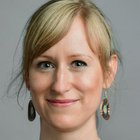The Current Column
Arctic cooperation beyond geopolitics
From Rovaniemi to Tromsø spirit?
Methi, Kirsti / Dorothea WehrmannThe Current Column (2023)
Bonn: German Institute of Development and Sustainability (IDOS), The Current Column of 30 May 2023
Bonn, 30 May 2023. If the Arctic Council is to survive the political crisis caused by Russia’s war, it should advance the integration of local voices and reflect on post-war relations with Russia.
The Arctic Council is the most important high-level intergovernmental forum for cooperation in the Arctic. Due to Russia’s full-scale invasion in Ukraine, seven of the eight Arctic states (all except Russia) decided to pause activities in the Arctic Council during Russia’s chairship. This month, Norway took over the chair of the Arctic Council from Russia. Its chairship might become the most important in the history of the Arctic Council, which will not survive in its current form without the largest Arctic state, Russia. If Sweden is granted NATO membership, Russia will be the only non-NATO member in the Arctic Council. The region already experiences increased militarisation.
To diversify the dominant depiction of the Arctic as a military hotspot and avoid that Arctic politics will largely be about security policy priorities in the future, a change of mind-set at the high-level and greater political will to integrate local perspectives are needed. “The people in the North” with emphasis on the young is one of the four priorities guiding Norway’s chairship for the next two years. Local voices from the North increasingly push for an understanding of Arctic politics that is not only centred on state-relations, but also considers the diversity of living conditions and livelihoods in the pan-Arctic region. The University of the Arctic network, the Arctic Mayors’ Forum, the Arctic Economic Council and the long-lasting transborder cooperation among indigenous and other peoples are examples for the strong interest and engagement that the people in the North share to find solutions for common challenges by interaction and mutual support. Decisions on the Arctic “periphery”, however, are often taken in distant capitals of the Arctic states and given the current geopolitical turmoil, security politics is dominating the circumpolar agenda of the Arctic states and paralyzing the Arctic Council.
Towards a Tromsø-spirit
With the “capital of the Arctic” being located in Norway’s Tromsø, where a significant number of Arctic Council events will take place during Norway’s chairship, there is great potential to move beyond long-lasting centre-periphery and classical geopolitical perspectives and to develop new narratives. The Arctic Council should enhance a more holistic approach covering concerns for peoples and societies in the North - like demographic change, a lack of infrastructure and services, and the adaptation of Arctic livelihoods to climate change. The international port-city with citizens from 139 nations, a large community from Russia and Ukraine, and Norwegian-Russian families hosts the secretariats of the Arctic Council and of the Arctic Mayors’ Forum, the Indigenous Peoples’ Secretariat, the Arctic Economic Council, the Arctic Frontiers conference, and numerous research institutions focusing on Arctic knowledge. Non-state actors on both side of the conflict that represent Arctic people, societies, should be considered also when reflecting on different scenarios on how cooperation with Russia may play out once the war is over. As global warming effects take place nearly four times faster in the Arctic than elsewhere, mitigating climate change is just one of many issues that requires cooperation, particularly in the Arctic.
More public conversation across governance levels in the Arctic is crucial to advance trust in present Arctic cooperation under the auspices of the Arctic Council. The Norwegian chairship should establish guidelines, structures, and platforms to incentivise meaningful long-term transnational exchanges that inform policy- and decision-making in the member states of the Arctic Council and integrate the perspectives of the people in the North on controversial topics in the Arctic Council, including the future relationship with Russia. The war in Ukraine clearly reinforced the dominance of geopolitics in the Arctic, also because the Arctic is increasingly perceived as a new mega region for securing Europe’s energy transition. But also before, investments in infrastructure, particularly along the Russian part of the Northern Sea Route, have been seen as supporting China’s ambition to strengthen its role in the Arctic Council, to pave the Polar Silk Road and its recognition as a global super power.
By keeping alive the so-called Rovaniemi Arctic spirit, which resulted in the founding of the Arctic Council in 1996, the purpose of the Arctic Council has been to facilitate cooperation at a circumpolar level. A new Tromsø Arctic spirit that integrates diverse local perspectives to the set of values guiding Arctic cooperation will be more resilient to attempts of green colonisation and great power games. This is needed to co-create a democratic legitimacy and relevance of the Arctic Council with respect for the peoples and local governance structures in the Arctic region.
This text was produced as part of the research project “Sustainable Urban Development in the European Arctic (SUDEA): Towards Enhanced Transnational Cooperation in Remote Regions” (project no. 426674468), which is being funded by the German Research Foundation (DFG) and by the National Science Centre (NCN) in Poland (Agreement UMO - 2018/31/G/HS5/02448).
Kirsti Methi is project manager of the Arctic Capital project in the Municipality of Tromsø. She holds a BA in Social Science and MBA in Strategic leadership and Economics.
Dorothea Wehrmann is a sociologist und project lead of the research project "Sustainable Urban Development in the European Arctic (SUDEA): Towards Enhanced Transnational Cooperation in Remote Regions" at the German Institute of Development and Sustainability (IDOS)


